- Home
- Cynthia Voigt
On Fortune's Wheel Page 3
On Fortune's Wheel Read online
Page 3
Birle kept motionless. The runaway slept on. His booted legs hung out over the side of the boat, and she saw how muddy those boots were. He slept with an arm flung over his face, as if to hide himself.
In her deep sleep, Birle had understood two things, which waking had concealed. She understood first that she must get back to the Inn. It was not courage but foolhardiness that had counseled her to act as she had. Without turning her head she could see how close to shore the boat lay. Two steps through shallow water and she would be away—back to the Inn and her family there, back to her wedding day, and Muir.
This was, she now understood, a wedding she no longer wished to be bride for. Muir was not the man she would wed, but he was the man she must wed. The promise she had given couldn’t be altered. A man had the right, but a girl did not.
All the years to come seemed to Birle a dark cloak, heavy as iron. How she would carry this mistake, she did not know. Maybe, she thought, he would get her with child, and she would die, as many women did, of carrying it or having it. Then at least she would not have long to bear the weight of her ill-chosen life.
For now, before abandoning the boat, Birle wanted to know whose it was, so she could carry word back to its owner. The fishing spear, if he had left it under the seat, would identify him.
She crept toward the stern, low over the rowing seat, cautious not to wake the runaway. Without trying to put her hand on the spear, she twisted her head to see its handle. It was the Inn’s mark burned into the wood, a falcon’s wing outspread. It was Da’s boat.
Birle didn’t know if that made things worse or better, and she wished she could find a way to return the boat. But to linger under a lightening sky, which must surely awaken him if the noisy birds didn’t, was foolish. She drew back with as much care as she had approached the man—for this runaway was armed. A short sword lay unsheathd across his chest.
Despite her care, the boat rocked sharply. As Birle crouched watching and afraid, his eyes opened. He sat up, the sword ready in his hand. When he saw her, he smiled.
Why he should smile so, Birle did not know. All she knew was that his smile lit up the morning as the rising sun does. For a moment, looking at his face, it was as if her ribs were empty, hollow, as if the world had stopped forever while she looked into his eyes as blue as the bellflowers that grew wild across the meadows. For a moment, just until her beating heart had returned to her chest, Birle thought she understood everything about herself that she had never understood before.
THREE
Birle crouched in the bow. The little river waves wept against the stony bank.
“Don’t be frightened,” he said at last. “There’s no need for you to fear me. I’m just surprised—dumbfounded, more like. I thought—” His smile faded. “You’re a child. Last night, in the dark, you sounded—I thought—” He scolded her, “You made me think you were older.”
What Birle was thinking she couldn’t say. “I’m no child. I was fourteen years this fall, and I’m to wed at the spring fair,” she told him. Aye, and with her heart breaking within her at such a wedding, it wouldn’t be many days until she died, wed to Muir. Never before had she felt so bitterly helpless.
For this runaway had no beard. A light stubble dusted his cheeks and chin, a lighter brown than the dark hair of his head and his dark eyebrows—and his eyelashes were gold-tipped, she saw. But he had no beard, for all that he was a man grown.
“What were you doing?” he asked her, more curious than cross. “What did you think you were doing? Wandering around in the night when you should have been in your own bed, dreaming whatever it is girls dream of in the days before they wed. Why did you follow me?”
“The boat,” she said. “You were stealing the boat.”
The mouth tightened and she knew she had displeased him. Back along the river, the way they had come in darkness and haste, the sun lifted its slumbering head to send rosy light flowing down along the water.
“And now what am I to do with you?” he asked.
Birle didn’t know what he might do. For he was no runaway servant.
What he was doing, creeping through the world like a thief—where he was going to, in secrecy—what he might be fleeing from—those questions also she didn’t know the answer to. But she did know that only the Lords went beardless.
This young man, with his bellflower eyes and a smile to light every corner of the world, was a Lord. He had her heart, and he was a Lord.
“Well,” he said, sheathing his sword, “I doubt I have any choice in the matter.” He wore no crested ring, nor any other sign about him to name the house he was son to. “I’ll take you back to your people.”
Birle closed her teeth against the words she wished to say. She knew she must go home.
“You’ve had nothing to break the night’s fast with, my Lord,” she said.
He looked surprised when she spoke his title, and then not surprised but resigned. “I thought to hoard what cheese I have left, and the bread can’t get any staler. I’ve not enough for two.”
He had misunderstood her. “I thought I would catch fish,” Birle said.
“How?”
“The fishing spear is under your seat. I know how to use it and if you look over there—” She pointed to the distant bank, where sunlight hadn’t yet penetrated the overhanging bushes, and some large boulders broke through the gilded surface of the water. “A good place for fish.”
“I’m not hungry enough to eat raw fish,” he said. “Not yet, anyway, although I’m beginning to understand that I might come to that.”
“I’ll build a fire. It’s simple to cook fish.”
“And the smoke from that fire will summon all the huntsmen and herdsmen of the area,” he said.
“There’s nothing for you to fear, my Lord,” Birle told him. Why should a Lord fear huntsman or herdsman? No man of the people would dare lay unfriendly hands upon a Lord. “This is empty forest, unclaimed forest. There’s no holding after the Inn.”
“What Inn?”
“The Falcon’s Wing. That’s where you took the boat,” she said, speaking swiftly on, “which is so far off now that even if there should be anyone sharp-eyed enough to see a little smoke, rising, he wouldn’t investigate. Aye, my Lord, this part of the forest is safe enough, from human dangers.”
“Are we beyond the Earl’s lands?”
“I think we must be. So we are beyond Mallory’s grasp, and even, I think, beyond the King’s reach.”
He studied the muddy toes of his boots while he thought about that. Birle sat quiet, studying him. His hair was the color of the leaf mold that lay on the forest floor, a rich, dark color. His wrists and hands were slim, for a man—but not for a Lord, she thought. In their bodies, as in the skin of their faces, the ease of life for the Lords was evident. At last, he raised his face to her, smiling. She waited, wordless. “In that case, I would like some fish, if you can catch them.”
Birle stood up. First, she would go into the trees for privacy. She could gather wood for a fire on her way back.
“Where are you going?” He too stood, ready. The boat rocked but they stood facing each other, Birle surprised and the Lord wary. Why should he fear her? “I asked you a question,” he warned her.
“I would relieve myself, my Lord.”
“Oh.” His eyes looked down in embarrassment. Birle was sorry to have embarrassed him. Lords, she thought, must not speak of such things as the people did. “Then I will do likewise,” he said, his cheeks pink.
As she made her way back through the trees and saw him waiting, Birle almost laughed aloud at the glad surprise, to see him there, tall and slim and straight. “We’ll need wood, for the fire,” she suggested.
“While you make off with the boat? I’m not so easily gulled.”
“Aye, you can trust me, my Lord,” she promised him, meeting his eyes.
He considered her. “Aye then, I will,” he said, mimicking her speech. “You have a name,” he asked.
“Birle,” she told him.
“Well then, Birle,” he said, “if you can catch us some fish, I can make us a fire. Pass the sack out to me; I’ve a tinderbox in it.”
The bag he traveled with was of thick woven cloth, gathered together at the top with a leather strap. It was not heavy, nor was it large to contain whatever of his life a Lord would take with him, running away. Birle lifted it over to him before she untied the boat, and sat down to take the oars into her hands.
When she returned with six silver fish on the seat before her, each one gutted and washed clean in the river, and her knife wiped dry and back in its sheath in her boot, he rose from the ground to greet her and tie the boat’s rope around the sapling. Birle, her fingers clumsy under his attention, fixed two of the fish on the spear prongs. She crouched beside the fire, which blazed crisply. He sat down beside his sack, to wait.
The morning warmed around them. The Lord ate the first two fish and then cooked the final pair while Birle ate hers. He took the last two for himself when she told him, almost truthfully, that she wasn’t hungry. “I’ve learned about hunger, even in those few days. If it is not now, I’ve learned, it lies in wait,” he told her. He sat cross-legged on the ground, picking off pieces of flesh until the supple bones lay clean. Birle threw their scraps into the river and then washed her hands in the running water. He followed her example. Birle thought, watching him dry his fingers on his cloak, that if she must leave his presence and lose sight of him forever—she could not bear that, even though she knew she must.
“My Lord,” she said, meaning to warn him about the port, but at the same time he said her name—“Birle”—and she could say nothing, hearing his voice speak her name.
“There’s a stone, a jewel, much prized, called beryl. Are you named for that? If your eyes were green, I’d think you were. It’s a pretty idea, to name girls after precious stones.”
Birle stomped on the coals, and scattered them with her boots until the fire was destroyed. “I can leave you the spear, to fish with, when I take the boat back.” Before he could argue she explained: “The spear is my father’s, a small thing for a gift. There is no need for you to retrace your way back to the dock.” Almost, she wished he had already gone off into the forest, because knowing he would soon go was like a stone crushing down on her.
“That’s not the way I’ve planned things, Birle.”
“You should be warned.” She ignored what he said. “Near the mouth of the river, where they say the river empties into a sea, there’s a port that’s—dangerous, unsafe. It’s a place for lawless men, and they take strangers for slavery or the sport of killing, as I’ve heard. It’s no place for a man traveling alone, and a Lord especially I’d guess. You can go around it. Are you listening? As you follow the river, you come to a little peninsula, reaching out into the river, and there’s an island just beyond its touch. This is where the land rises higher, and the banks grow steep and stony. I can’t tell you how far downriver it is, because I’ve only heard of this place from the merchants. It’s the point where they turn into the forest, as they journey south after the fairs, there, at that peninsula. It keeps them a safe distance from the port. There must be a path, and it must be visible, because they travel with laden beasts. You must not miss it. They say it’s a high, barren island, very small, with a single pine at its center. You should be able to recognize it. And pass safely by the port,” she concluded.
To know that he was safe, that would be something to comfort her. She would never know what became of him, just as she would never know what had driven him away from his father’s house and his own lands, but she would be eased it she could think him safe.
“I’d heard rumors,” the Lord said, “but I don’t entirely believe them.”
“Believe them,” she urged him.
“I mean to take the boat.”
If it were hers to give, she’d give it to him gladly. “My father—”
“What has you father to do with it?”
“Aye, it’s his boat, my Lord.”
“Well, then, that’s easy. Just say I was a wild and desperate man—which is near enough the truth—and he’s lucky to have his daughter returned unharmed, so he shouldn’t fret over the boat.”
“It’s his boat.” Birle didn’t know why she was being so stubborn, except that as long as they were quarreling, they weren’t parting.
“Is this his livelihood?”
Hope raised Birle’s eyes to his, but the ready lie was more than she could say to him. She would not put an untruth between them. “No.”
The Lord smiled.
“I still can’t let you take the boat.”
He bent to his bag, not answering. Instead of picking it up, as Birle had thought, he reached into it and pulled out first a wooden box, then a clean shirt, and then from within the folded shirt a folded piece of paper. He sat down on the ground. Birle did the same.
When he had unfolded the paper, she saw that it was a map, more hastily drawn than those in her grandparents’ house, but still a map. She recognized the Kindgom, with its forking river. At the top of the map, the letter N, with an arrow pointing upward beneath it, indicated where north lay. The cities were marked by X’s, ringed round with circles: three in the north, the King’s city, three in the south, with Mallory’s the southernmost. This map, she saw, went on beyond the Kingdom.
“This is a kind of chart of the land,” he said. Birle didn’t tell him she knew that. “I’m trying to guess how far I’ve come.”
The port was not marked on this map. Long dark lines slanted to show the forest, out of which the river emerged into open space. She had never seen a map that told of more than the Kingdom, and she wondered who had made it. Two circled X’s to the southwest might be two cities, at the edge of the sea, with forest stretching inland behind them. If she had been more often allowed to serve the Inn’s custom, rather than being kept in the kitchen to ladle stew and wash pots, to cut cheese and bread, to take pastries out of the oven, she might know more about the land beyond the Kingdom. All she knew was that everybody, Da too, agreed that those lands were dangerous. Thinking of the danger, Birle reached out her finger—not thinking—to place it at the river’s end. “Just there. That’s where the port will be.”
He looked up at her and she realized her mistake. “If, as I think, this line marks the river, because it curves and winds. Does it?” she asked, to distract him.
“Yes, as it happens, it does. Who told you of this port?”
“We’re on the borders of the Kingdom,” she explained, her words coming out fast in her hope not to have given her knowledge away. “The caravans for the fairs stop at the Inn. Ours is the first they come to, going to the cities, and the last they leave, traveling south.”
“I wouldn’t have expected you to know—”
He didn’t finish the thought, but Birle could finish it for him: much of anything beyond your own daily work. She knew what the Lords thought of the people, from serving the Earl’s Steward on his twice-yearly taxing visit to the village and Inn, from the conduct of the messengers. These were Lords of the lowest order, these stewards and messengers, so the higher Lords would be even more disdainful. At the fairs, Lords and Ladies acted as if all the world except for themselves were invisible. A man might get justice against a Lord, if he could claim it, at the Hearing Day. But those were the great Lords sitting as judges, not these everday Lords who sometimes had little more than their birth to keep them fed. Maybe this young Lord was a lackland. Whatever he was, she didn’t want him to disdain her.
“My father keeps the Inn, the Falcon’s Wing,” she told him. “So we often meet outlanders, and hear many strange things.” She stood up, and brushed the twigs and dirt from the back of her cloak. “I could travel the day with you, to take you farther along, safely on the river.”
“What is so important about this boat?” he asked. He remained seated, so she was looking down on him. His hair shone in the sunlight.
&nb
sp; “The Inn is in Sutherland’s gift,” she answered. He should know his adversary. “The Earl has a special care over the Inn, which stands at the very edge of the Kingdom, at the border of his lands.”
“You have warned me, and I thank you,” the Lord said. “Although I don’t fear the Earl—no more than I fear any other man—he is all the more reason for me to take you safely home, before I go on. And how can we know? It might be that if the Earl knew my need, he’d give me this boat. But you must not tell your people anything about me.” That thought brought him to his feet. “My safety lies in secrecy. I ask your promise.”
She would make that promise, and keep it. “What would you have me say, my Lord?”
“Tell them something they will believe, but not the truth.”
She could not imagine what he could have done to make flight necessary, and in such secrecy. What crimes could the Lords commit? Theft, or murder, she answered herself, a plot against the King. But he didn’t have the look of a murderer. She had seen, in her time, two murderers at their hangings. Neither of them was a Lord, but she would stake her life on this man, that he was no murderer. Aye, and she wished she could stake her life on it.
“Tell them—that you went for a nighttime ride and the boat overturned, which in the wind it might well have. The current carried you downstream. You deemed it safer to sleep the night on shore rather than risk the forest at night. Wouldn’t you have done that?”
“Nan would have me locked in my room if she thought I was doing such things,” Birle protested. He had said he was not a thief, and she would take his word on anything.
“Then say you went to check the boat, and it was working loose, and you tried to rescue it but it got away from you.”
He didn’t have the look of a traitor either. Traitors were greedy, for power or wealth. There was no greed in his eyes.
“Or tell them you don’t know what happened. That might be best. Tell them you awoke to find yourself in the forest, in the night. There are some who walk in their sleep and never remember how they came to be where they are when they awake. I’ve heard of such things.”

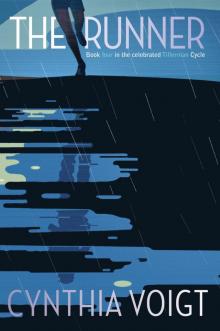 The Runner
The Runner By Any Name
By Any Name Bad Girls, Bad Girls, Whatcha Gonna Do?
Bad Girls, Bad Girls, Whatcha Gonna Do?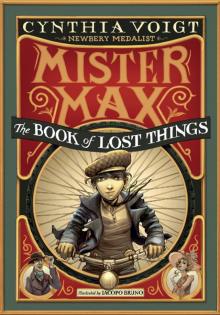 Mister Max: The Book of Lost Things: Mister Max 1
Mister Max: The Book of Lost Things: Mister Max 1 The Wings of a Falcon
The Wings of a Falcon Bad Girls in Love
Bad Girls in Love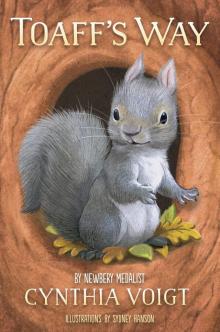 Toaff's Way
Toaff's Way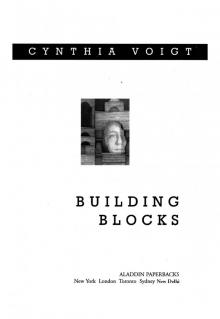 Building Blocks
Building Blocks Orfe
Orfe Tell Me if the Lovers Are Losers
Tell Me if the Lovers Are Losers It's Not Easy Being Bad
It's Not Easy Being Bad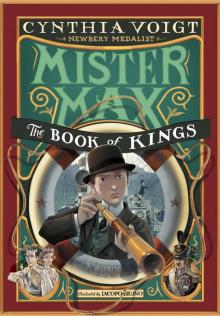 The Book of Kings
The Book of Kings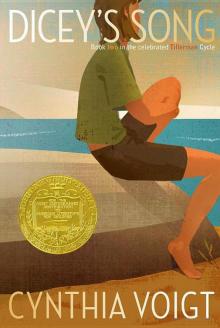 Dicey's Song
Dicey's Song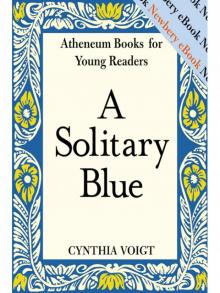 A Solitary Blue
A Solitary Blue Tree by Leaf
Tree by Leaf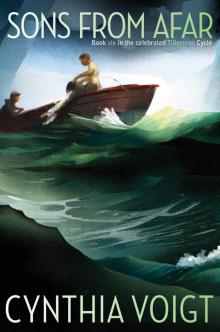 Sons From Afar
Sons From Afar Teddy & Co.
Teddy & Co. Jackaroo
Jackaroo Elske
Elske Izzy, Willy-Nilly
Izzy, Willy-Nilly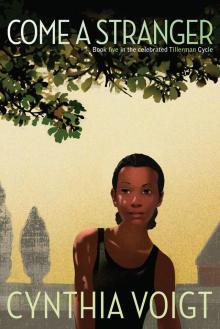 Come a Stranger
Come a Stranger Mister Max: The Book of Secrets: Mister Max 2
Mister Max: The Book of Secrets: Mister Max 2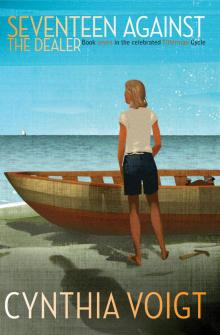 Seventeen Against the Dealer
Seventeen Against the Dealer The Callender Papers
The Callender Papers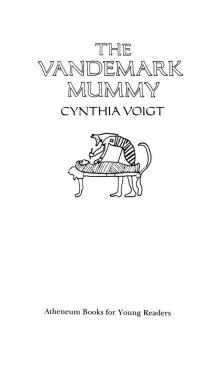 The Vandemark Mummy
The Vandemark Mummy Tale of Birle
Tale of Birle Glass Mountain
Glass Mountain The Tale of Oriel
The Tale of Oriel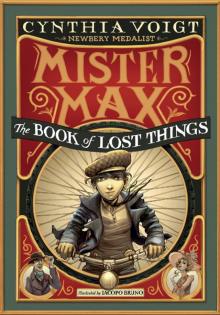 The Book of Lost Things
The Book of Lost Things The Book of Secrets
The Book of Secrets Tale of Gwyn
Tale of Gwyn